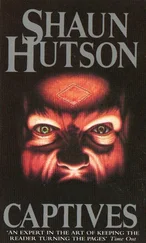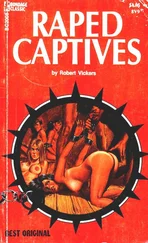Norman Manea - Captives
Здесь есть возможность читать онлайн «Norman Manea - Captives» весь текст электронной книги совершенно бесплатно (целиком полную версию без сокращений). В некоторых случаях можно слушать аудио, скачать через торрент в формате fb2 и присутствует краткое содержание. Год выпуска: 2014, Издательство: New Directions, Жанр: Современная проза, на английском языке. Описание произведения, (предисловие) а так же отзывы посетителей доступны на портале библиотеки ЛибКат.
- Название:Captives
- Автор:
- Издательство:New Directions
- Жанр:
- Год:2014
- ISBN:нет данных
- Рейтинг книги:3 / 5. Голосов: 1
-
Избранное:Добавить в избранное
- Отзывы:
-
Ваша оценка:
- 60
- 1
- 2
- 3
- 4
- 5
Captives: краткое содержание, описание и аннотация
Предлагаем к чтению аннотацию, описание, краткое содержание или предисловие (зависит от того, что написал сам автор книги «Captives»). Если вы не нашли необходимую информацию о книге — напишите в комментариях, мы постараемся отыскать её.
Captives
This is a moving account of a country shaken by communism and anti-Semitism and haunted by recent atrocities, from "a distinguished writer whose vision of totalitarianism is close to Kafka's cloudy menace, universal yet internalized" (Richard Eder,
).
Captives — читать онлайн бесплатно полную книгу (весь текст) целиком
Ниже представлен текст книги, разбитый по страницам. Система сохранения места последней прочитанной страницы, позволяет с удобством читать онлайн бесплатно книгу «Captives», без необходимости каждый раз заново искать на чём Вы остановились. Поставьте закладку, и сможете в любой момент перейти на страницу, на которой закончили чтение.
Интервал:
Закладка:
• • •
Squeezed into my tight collar, I would return home late at night. Back then, we used to go out to the villages where we’d assemble the peasants for our recitals, dances, and performances. After that, a truck would drop us off at the formerly Austrian town hall. The nights were cold. Thin and impetuous, I used to slip along the sidewalks, hugging the walls. Then I’d huddle between the coarse sheets, exhausted but sleepless, reading in bed. Those were the ardent, impatient reading sessions when I first experienced naïve and turgid rhymes, and felt the pulsation of words.
The public demonstrations soon struck me as frivolous, though, so I watched Virgil Mehedinţi tensely. I studied his movements. He was a great model. I tore up my pathetic poems: their violence and solemnity seemed ridiculous. It was time to take the next step. I realized I was making a fool of myself — singing and dancing like an idiot for the benefit of silent, dignified workers, so I gave up the cultural activism that was driving the nearby villages crazy. I was busy studying Virgil Mehedinţi’s gestures, words, and way of looking when I came upon my passion for mathematics.
I rarely saw my parents. Father was often gone. It was hard for Mama to divide her time between the house, the bank, and meetings. I was one of the leaders of the political youth organization, but didn’t neglect math, and came home late on a regular basis. We’d talk sometimes, and then I felt my parents’ concern. One evening, I heard them whispering: “He’d be ready to do anything.” Of course, I would have to be ready to do anything. Two honest bank clerks couldn’t very well understand what I was up to. We were building a new society, and the frenzy of postwar reconstruction was liberating in its way. I had a part to play, and it cured me of my humility. In those hasty years, I learned to speak loudly, declaim publicly, and slam doors.
My parents used to come home late and exhausted. They slept little, ate fast and plenty. Fat and bloated now, agitated sleepers wrenched from bed at dawn, beaten by the daily rat race, they had no time to regain their physical balance, and when they got home they unloaded all their tiredness and discontent and the suffocations that come with age: alarm signals of endangered health. For them it was a matter of sadness and collapse. They were dumbfounded by their teenage son, who saw them as ruined statues. In their moments of exhaustion, he’d confront them with questions and distrust. We were caught in a barbed circle, with no way out.
During the day, I used to rush around, leaping over every hurdle — from the folkloric show to political meetings to mathematics and then back to the meetings again and those first awkward kisses in the city’s dark corners. Vitality kept changing its direction, but I wouldn’t forget that the world needed cleaning: we were the angels of purity destined for a new heaven, impeccable and pure, safeguarding consciences as crystal clear as my little sister’s eyes and soul. Named for the communist heroine Donca Simo, my sister Donca had just turned seven.
• • •
Our gray loden coats with little military collars would flap over our long, wide trousers and work boots. We were like bundles of immense sleeves when we took each other by the arm. An embracing couple turned into a topsy-turvy scarecrow of flailing clothes. Fingers intertwined, racing to get past so many layers of fabric, to liberate some corner of skin, to sink into flesh. We’d interrupt our scuffle when we got to the unlit spaces at the edges of buildings, where we’d pause for a hasty, ravenous embrace.
I kept dreaming of naked bodies, soft arms, the classmate who unbraided her pigtails while laughing, dizzy with desire. In dreams, too, we were horrified by the forbidden closeness, paralyzed by prohibitions. We lacked the courage to share the iniquity we craved. We’d wake exhausted between damp, crumpled sheets. The next evening we’d see each other again at yet another meeting or in the stinking lair of the cinema. Frozen, we’d solemnly listen to the crunch of snow. We’d use big words — principles kept rarifying the air. Our bodies would slam into each other again, and then we’d be looking for ravines, dark courtyards, and tall church fences. While mixing breaths, our teeth would clash; we’d scratch, blinded, frenzied by the panting that turned us into wild beasts. At home, frightened parents would inspect their child’s tangled hair still damp with snow. The tension would rise, the room would get smaller. I’d hate the thick, damp walls, the food that tasted like washing water, the hostility of the guards. They thought I was abnormal, an enemy. The torment of chastity went on exploding between thin, fiery sheets. Yes, I was abnormal and their enemy forever. Their little domestic habits revolted me, their suspicious looks, all the slurping at table, the snoring, and those little nightly groans through the door.
The way things stood, the wish to visit the nearby salt mine would have provoked another crisis of suspicion.
• • •
With small steps I was making my way across the uneven stones with my eyes glued to the ground, fiddling with the metal clasp of my satchel. Always suspicious, my parents were expecting me, and I skipped from crooked stone to stone as if this could have helped me defend myself from what lay in wait — all of which became, in its own way, a superb novitiate for the strict devotee who kept refusing his parents access to ideality, principality, and reality.
— Sir! The woman had waited for me to pass in front of her without noticing, and she said, can anyone be that distracted?
This lady was one of the city’s three destitute aristocrats who had barely maintained themselves by giving German and piano lessons in the other wing of our building. All three of them were crammed into a single room. It was said that there was nothing but filth in their room crammed with junky, old, mismatched antiques, that they were a laughingstock, not only on account of their eccentric dresses but particularly because of their delicate manners and because they were afraid of any new bit of news in the papers or on the radio. The neighbors said that two of the sisters were old maids, but Colette Triteanu was the widow of a former minister.
— I’ve heard you’re a studious young man. I could lend you interesting books. I still have my husband’s library, which is actually quite extensive.
The aristocratic lady was trying to put herself on a good footing with a young militant and maybe his parents. Her white hair fluttered youthfully above her thin shoulders, and singing lessons had “educated” her voice.
— Give me one.
I waited while leaning against the wall of the building. Father had been gone for three days. He was due back, but I wasn’t in a hurry: I also wasn’t interested in exploring the rumors about how our aristocratic neighbor lived. My dry response had flustered her. She returned quickly with a large, blue hardcover.
— This one’s decisive for a young man. I imagine you can read German.
— Of course, ma’am. With your permission, I’ll visit you to return the book. I’d be delighted to meet your sisters as well.
I left quickly, without allowing myself the pleasure of seeing her face.
Lunch had already been served. At the end of the table, Father was laughing at the silly face that pudgy little Donca was making — she was miming the adventures of her first months of school. She displayed proof of her skirmishes and games with the boys on hands, nose, and knees, and they enlivened the monotony of our lunch times. Right now, she was covered in ink, down to her shoes.
I asked Father where he’d gone. He told me he’d had to stay three days at the salt mine. I went out to wash my hands. When I came back, I told him we had a new classmate whose father was working at the mine. He asked me where he came from.
Читать дальшеИнтервал:
Закладка:
Похожие книги на «Captives»
Представляем Вашему вниманию похожие книги на «Captives» списком для выбора. Мы отобрали схожую по названию и смыслу литературу в надежде предоставить читателям больше вариантов отыскать новые, интересные, ещё непрочитанные произведения.
Обсуждение, отзывы о книге «Captives» и просто собственные мнения читателей. Оставьте ваши комментарии, напишите, что Вы думаете о произведении, его смысле или главных героях. Укажите что конкретно понравилось, а что нет, и почему Вы так считаете.












